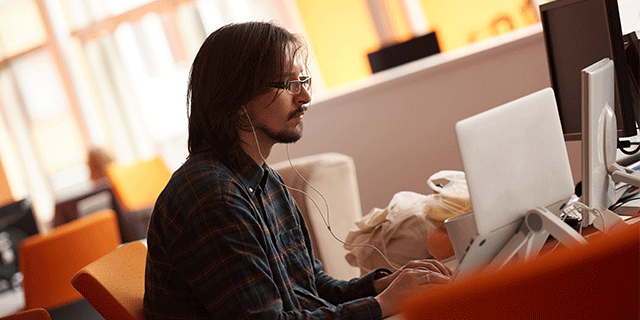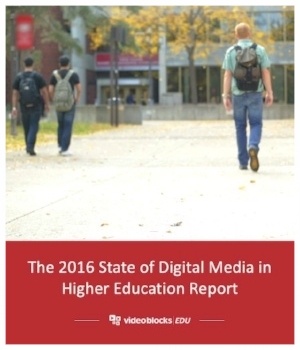
In the past few months, we’ve written substantially on how schools and universities are incorporating new technologies into their curriculums and pedagogies, from increased use of digital resources to better engaging with students through digital storytelling. But what about the actual spaces—the classrooms, intensive workshops, and labs—that are helping students bridge the digital literacy gap and innovate for the future? We examine how multidisciplinary workspaces, including makerspaces, incubators, and innovation labs, are productively disrupting current educational frameworks and reshaping the face of higher education.
In a March 2016 Washington Post op-ed entitled “Enough with Trashing the Liberal Arts. Stop Being Stupid,” educational correspondent Valerie Strauss noted a disturbing trend among campaigning politicians to disparage the liberal arts in favor of specialized or technical educations. Their rationale, as Strauss notes, is that college students “would do better studying subjects guaranteeing decent paying jobs.” Even President Barrack Obama added his voice to the criticism, suggesting in a speech in early 2014 that students would make more money with a technical degree than with a B.A. in Art History—remarks he later walked back and apologized for.
Although Strauss commendably acquits the liberal arts of these claims while highlighting their enduring value, her piece accentuates a larger, more persistent issue in higher education than the roughshod critiques of aspiring demagogues: the increasing emphasis on narrowly focused fields of study and the polarization of academic departments. Put another way, while the Arts and Sciences have always enjoyed a certain healthy rivalry, in recent years, the clash has escalated to outright antagonism, due in large part to competition for funding, recognition, and resources.
Given this prevailing friction, hybrid learning spaces at universities and college campuses can often seem like breaths of fresh air for both students and educators. Makerspaces, incubators, and innovation labs all underscore the strengths of interdisciplinarity while inspiring more congenial and more productive cross-departmental collaborations.
Even though their names are sometimes used interchangeably, more often they refer to three distinct types of knowledge lab that emphasize hybridized skill sets and critical approaches with practical applications. How these hybrid learning spaces are titled often depends on their educational missions or departmental provenance.

In the New Media Consortium’s 2016 Horizon Report for Higher Education, the NMC cites makerspaces as essential keystone ventures for the future of education, and defines the labs as “informal workshop environments” where students “gather to create prototypes or products in a collaborative, do-it-yourself setting.” The heart of the spaces lies in their tangible assets and their emphasis on “doing” and producing, either with digital hardware, including 3D printers and Raspberry Pis, or with soft resources like digital media libraries and design and coding programs.
Yet, lest we confuse these labs with the “shop classes” of eras past, although they emphasize a literal hands-on approach, these spaces are still firmly grounded in critical perspectives and intellectual engagement. Embedded in essential conversations about community, access to technological resources, civic engagement, and disruptive thinking, the NMC notes that by participating in the workshops, “students engage in creative problem-solving and higher-order thinking” while bridging knowledge-bases that are often seen at odds with each other.
On the other hand, due to their entrepreneurial and startup-culture foundations, incubator programs traditionally focus less on specific prototypes or products and more on generating healthy, successful business ventures. Even so, these labs still emphasize multidisciplinary perspectives by incorporating technical or artistic skill sets and humanities-based critical inquiry as essential elements of their growth modules. As a result, such programs are now springing up in STEM, communications, media & interactive media studies, and digital design or art departments, in addition to their traditional business school bases.
Much like makerspaces, incubators focus on creating new and disruptive projects that engage with their communities and marketplaces at the intersections of daily life, creativity, and technology. As such, it’s not uncommon for the two types of lab to overlap or work together symbiotically, pairing needed tangible assets with essential business know-how.

Innovation labs are often a much broader category of hybrid space, harnessing the originality and creative power of both types of workshop. Encompassing hands-on workshops, digital resource libraries, business accelerators, art labs, coworking spaces, technology labs, or any combination of the above, what an innovation or “idea lab” constitutes depends entirely on the founding institution’s or department’s goals.
Despite this ambiguity, innovation labs sit at the core of the shared entrepreneurial, disruptive, and progress-oriented values that the other hybrid spaces also embody. For each, there is an underlying awareness of the “glocal”—digitally connected markets and communities that have shared local and international impact—and an interest in harnessing collaborative learning for real, tangible innovation.
More importantly, the brilliance of these hybrid spaces for educational use is in their interdisciplinarity and collaborative spirit, creating places where the critical perspectives of the liberal arts are just as important as the insight and know-how of STEM fields or the creative arts. Instead of isolating fields of study, these labs give students the opportunity to explore a less homogenized learning environment, marrying the analog with the digital, the theoretical with the pragmatic, and the civic with the corporate. In a polarized educational landscape that often only offers students a limited, “either…or” framework—“either you’re an engineer or a psychology major”—such hybrid spaces have become essential for shaping and enriching the “thinkers and doers” of the future.


